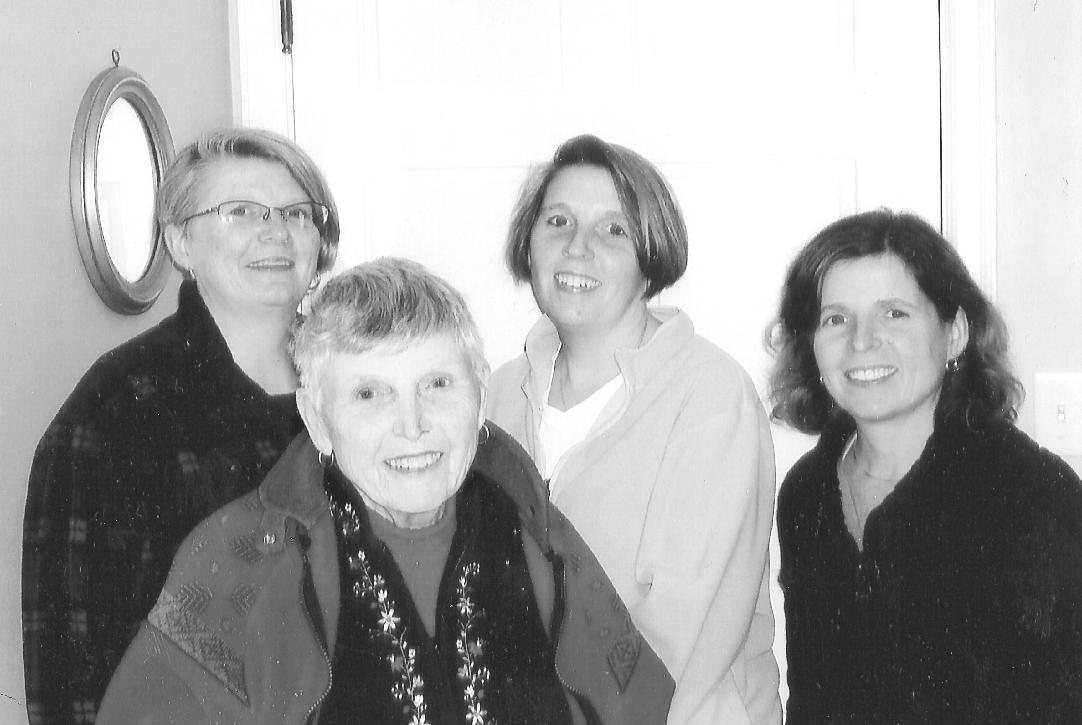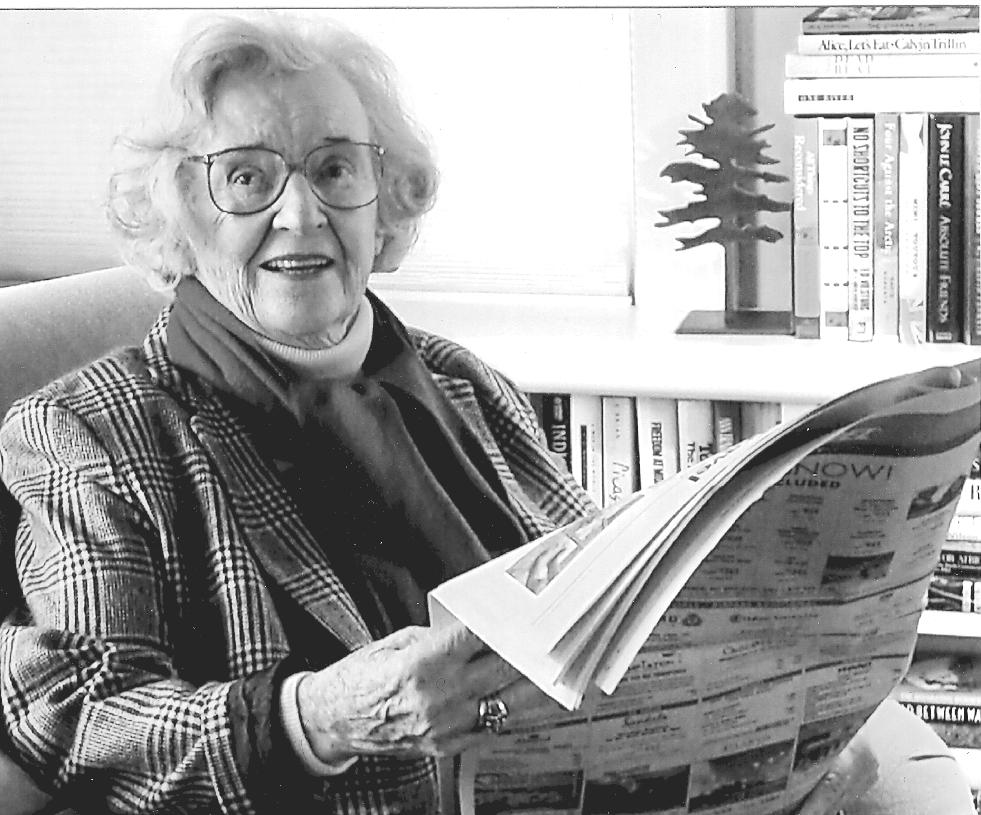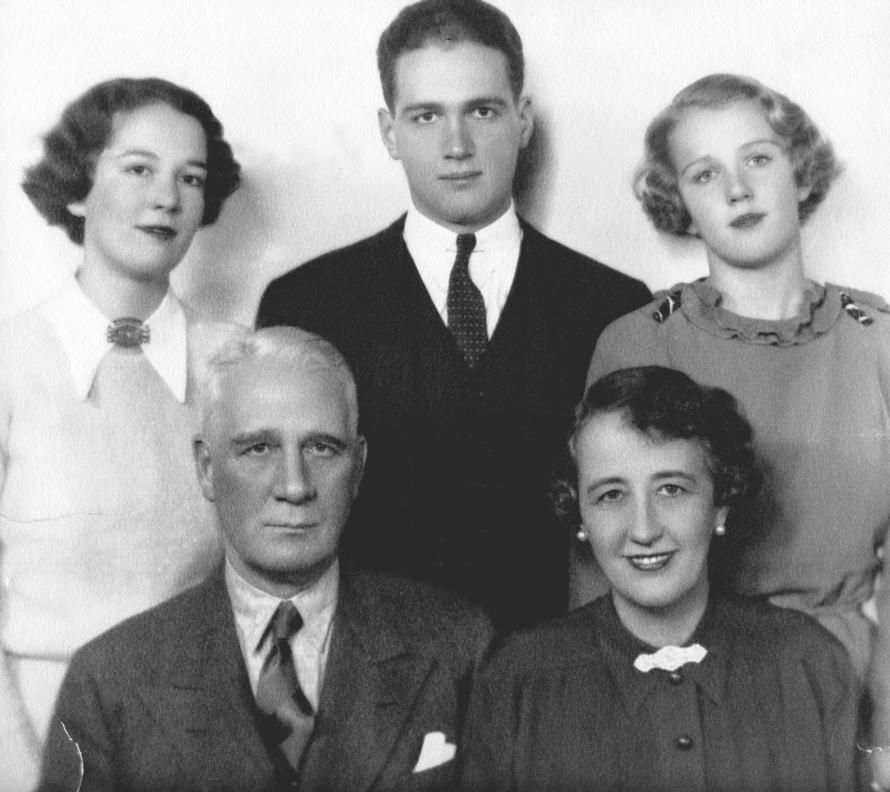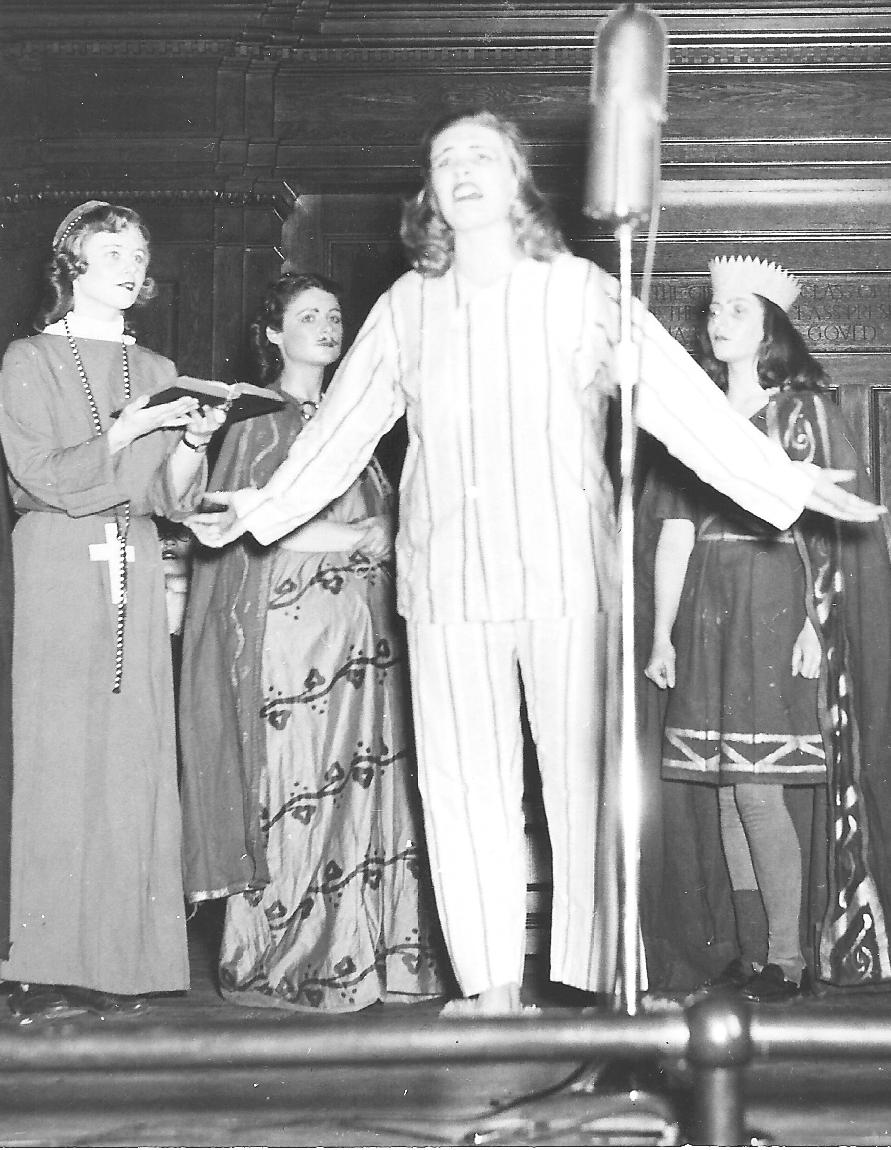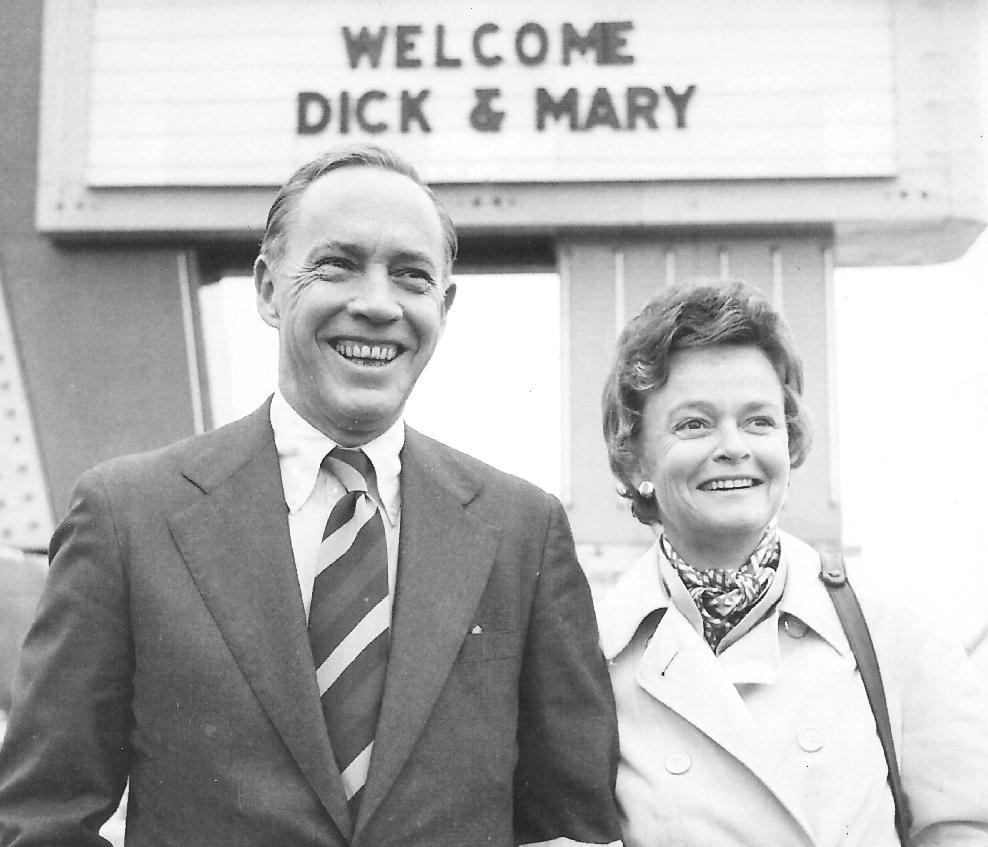
9 minute read
Molly Duff woehrlin ’53

Molly with mother Helen Jones Duff (Smith ’18), 1935
Advertisement
interviewed by cathy muldoon ’88 and Kate lehmann ’78 on march 22, 2008
If the goal of Smith College is to educate young women to play lifelong leadership roles in their communities, Molly Duff Woehrlin could be the school’s poster child.
A three-term Rice County Commissioner, the first woman president of Arc of Minnesota, a long-time advocate at the Minnesota State Legislature for the rights of individuals with mental disabilities, a prominent voice for sustainable development and environmental protection, a proponent of women in elected office, and a tireless worker for other causes, Molly has brought her talents to bear on a wide range of important issues of our time.
On a snowy March day, we talked with Molly on the four-season porch at the back of her spacious Victorian home in Northfield, Minnesota. She displayed family photos as she talked. Behind her, moist spring snow fell and occasionally plopped to the ground from bending tree branches. A fire completed the comfortable scene.
Her interest in and talent for leadership were honed both at home and at Smith, Molly explained. She grew up in a well-educated and civic-minded family with strong ties to Smith that went all the way back to the earliest years of the college.
Her great-grandfather Samuel Gale grew up in Massachusetts in a family of 10 children. After his father died, he and several siblings were sent to live with relatives because the farm could not feed so many mouths. Living with an uncle who was a tanner, Samuel showed no interest in that vocation. Eventually, he got some schooling and then worked his way through Yale. He graduated as valedictorian of his class, spent a year at Harvard Law School, and in 1857 moved to Minnesota, one year before it became a state.
Samuel went into real estate, becoming one of Minneapolis’ early land developers, buying a large tract called Maplewoods on Wayzata Bay and selling off pieces to friends and family. He traveled back to the East Coast fairly frequently to meet with family and investors. He met and married Susan Damon of Holden, Massachusetts, a town near Springfield.
The Gales sent four children back East to college. Edward, the oldest, went to Yale, his father’s alma mater. All three girls—Molly’s grandmother Alice, as well as Anna and Marion—went to Smith.
Alice was a member of the seventh class at the college, enrolling in 1883 and graduating in 1887. Anna, a member of the ninth class, followed Alice to Smith in 1885, rooming with her sister in Dewey House for two years. Anna graduated in 1889, and Marion, the youngest sister, enrolled in 1890 and graduated in 1894. Alice and Anna were the first women born and raised in Minnesota to graduate from Smith.

Graduation from Northrop, 1949
Alice Gale Jones later became Vice President of the Smith Alumnae Association, as did Molly herself.
Education, including the education of women, was an important topic in Molly’s family, and so was politics. As Molly grew up, vigorous political discussions often took place around the dinner table. Great-grandfather Samuel Gale had campaigned for Lincoln on horseback. Molly’s maternal grandfather, David Percy Jones, was mayor of Minneapolis. Both maternal greatgrandfathers served on early local government councils and were involved in establishing major cultural institutions in Minneapolis. Molly’s mother, Helen Jones Duff (SMITH ’18), served as president of the Minnesota League of Women Voters. Her oldest brother, Phil, served in the State Legislature.
The spirit of advocacy came early, too, mainly from watching her mother and her mother’s friends. Strong, active women, they participated in political and other matters at a time when it was considered proper to be home waiting for your husband with dinner on the table.
Molly believes that the interactions and role models she was exposed to as a young person helped her develop a tolerance for conflict and for heated intellectual discussions that has benefited her in many ways—particularly in holding elective office in later years.
The interests and talents she brought from home, she polished at Smith.
Since all of the women in three previous generations of her family had attended Smith, it was assumed that Molly also would go. She recognizes that she was probably a little defensive about this assumption but saw no reason not to comply.
At Northrop Collegiate School in Minneapolis, Molly did well in a “small pond” and earned good grades, but she found it much more competitive at Smith, where she was surrounded by very able students. Undaunted, she petitioned to take honors classes and worked hard to achieve Bs. She understood that grades weren’t the only important thing at Smith, however. She was active in extracurricular activities, taking advantage of leadership opportunities and building herself as a leader as well as a scholar. She had fun, too, attending the many wonderful events Smith hosted.
Molly enjoyed the rich environment of questioning and exploring that Smith fostered. A government major, she particularly remembers Leo Weinstein’s constitutional law class as a highlight of her college experience. “He was a passionate teacher,” she noted. Reminiscing about Smith’s role in her work, particularly her County Commissioner work, Molly said, “Here again was the Smith training. We learned how to ask questions. I just was so conscious of having gone to Smith, of having gone to a good college. We dealt with new material all the time—things I had never heard or conceived of. You had to use your research skills, you had to figure out what kind of questions to ask, who to
ask questions of, and it was really very exhilarating.”
After graduation, Molly married Bill Woehrlin, an Amherst graduate, and they had four children. But Molly did not want to be a stay-at-home mom; community involvement and politics beckoned. “When Betty Friedan’s book [The Feminine Mystique] came out, I had a tear-stained copy. She just told my story, absolutely—having to cope with children at home and struggling to get outside the home. She gave me justification.”
In 1962, Bill joined the history department at Carleton College and the family moved to Northfield. The small but intellectual Minnesota town was an ideal place in the 1960s for Molly. Following in her family’s tradition of civic engagement and social change, she was also influenced by the second wave of the feminist movement. “Gloria Steinem came along and I poured over every issue of Ms. Magazine and anything she ever wrote.”
Reviewing a lifetime of involvement, Molly describes her “causes” in terms of decades, noting a number of shifts that reflected changing social issues.
In the 1960s, Molly participated in starting the Northfield Human Relations Council in response to the civil rights movement. She also was involved in A Better Chance, which brought minority students to Northfield High School, becoming president of that organization in 1967. On a more personal level, as the parent of a child with mental disabilities, she worked to create Project Friendship, which pairs college student volunteers with special needs children in Northfield.
The 1970s saw Molly continuing her advocacy on disability issues. She became active in the Minnesota Association for Retarded Citizens (now Arc of Minnesota) and was its government affairs chair as well as its first woman president. She lobbied at the Minnesota State Legislature from 1964 to 1978 and worked with the Minnesota Committee for the Handicapped, PACER Center, and Mental Health Coalition of Rice County. On the state level, she served on many advisory committees, working with such organizations as the Governor’s Council on Health, Welfare and Rehabilitation and the Department of Education.
In the 1980s, Molly focused her activity on county government. Elected in November 1982 as a Rice County commissioner and re-elected

Alice, Marion, and Anna Gale attended Smith in its earliest years— Gale family granddaughters and great-granddaughters are active in the Minnesota Smith Club today

Molly’s first Smith Day in the Country, 1935—photo printed in a Minneapolis newspaper with the caption “She Says Rowing Is Good Exercise”
twice, she served from 1983 to 1992 and worked on health and human services policy legislation for the Association of Minnesota Counties. She also became involved in several organizations advocating participation by women at higher decision-making levels in appointive and elective office, and she worked hard to promote women running for office.
Molly turned her attention to environmental advocacy in the 1990s, achieving leadership positions in the Nature Conservancy’s Minnesota chapter, Cannon River Watershed Partnership, and Minnesota Sustainable Development Initiative.
In the new millennium, philanthropy and elder care occupy much of Molly’s time. She is a board member of the Northfield Area Foundation, a founding member of the Wings Foundation, and a member of church support teams that assist elders who do not have family members to help. She continues to volunteer with the League of Women Voters of
Northfield and the First United Church of Christ.
One thing Molly believes about volunteerism is that you must not get so involved in policy that you forget the human dimension. She has always been energized by direct connection with the people she is trying to help.
Asked about significant influences in her life, Molly points to the civil rights movement and its impact on her activism, and to her children’s impact on her philosophy of life. Although she hardly describes her four children in these terms, she told us that one has mental disabilities, one is lesbian, one struggles with depression, and one has been chemically dependent. Molly recognizes, especially as a parent, that she doesn’t always have control and that life isn’t perfect. Someone else’s ideas of success or accepted norms aren’t necessarily her own. Her children have given her a unique perspective on success.
As we wrapped up our conversation, Molly reflected on her journey thus far, and the important part played by the liberal arts education she received at Smith.
She encourages current and prospective Smith students to be open to all that the college has to offer. Interestingly, she couldn’t think of a single warning for young people about what to avoid in their evolving lives. “Life happens— learn from it and adjust your direction as needed,” she said, a maxim reflecting Molly’s life. t

Running for Rice County Commissioner, November 1982

